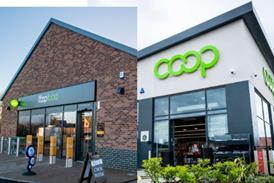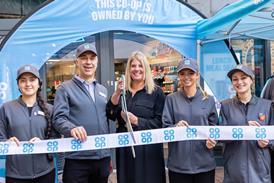Somerfield to test authorities
Somerfield is to appeal against the Competition Commission’s (CC) ruling that it has to sell 12 of the stores it recently purchased from Morrisons.
ALREADY HAVE A REGISTERED USER ACCOUNT? PLEASE LOG IN HERE
To read the full story join the ConvenienceStore.co.uk community today!
Registration is quick and easy and provides access to:
- Unlimited ConvenienceStore.co.uk articles
- Our great range of newsletters
- Content you’ve saved for later via the ‘my library’ feature
And much more…



















